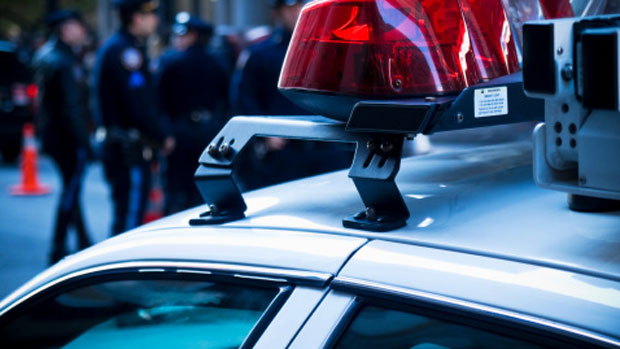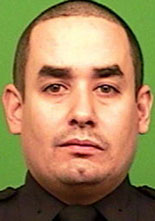The brazen murders of two New York City police officers, Wenjian Liu and Rafael Ramos, on December 20, stunned the nation and cast a pall over the Christmas season. Since the shooting details have emerged about the lives of the two slain officers, including Ramos’s plans to become a chaplain. To get a better feel for who Ramos was and why he was drawn to ministry, we talked to Marcos Miranda, president of the New York State Chaplain Task Force, who oversaw Ramos’s chaplain-training program.
How did you meet Rafael Ramos and what was he like?

Officer Rafael Ramos came to our intensive community crisis chaplain-training program. He was very excited because he didn’t realize he could be a chaplain. He thought chaplains were only members of the clergy. He was glad to know that we had a division of lay chaplains, which is what he would have been.
Officer Ramos took the course for 10 weeks and turned in all of his homework assignments and received an “A” on each of them. He really excelled and I was able to have a lot of conversations with him throughout the course’s 10-week period. He was due to graduate on December 20 with 144 other chaplain candidates. We had two graduations: at 12 p.m. and a 4 p.m. and Rafael was due to graduate at the 4 p.m. slot. Of course, he was working that day and was assassinated before he could graduate.
How did Officer Ramos approach his job?
If you were to bump into Officer Ramos in plain clothes on a Saturday afternoon while he was off duty, you would probably never think he was a police officer. New York City cops have a certain look about them, a certain aura. Many come from a long line of officers and you can just tell they’re cops. But Officer Ramos was different; he did not have that same feel.
Rafael was a person who loved the Lord. He had been serving faithfully for 14 years at his local church, Christ Tabernacle in Glendale, New York. The Lord was at the center of his life. God played a role in everything he did.
He viewed being a New York City officer as a service to his community. In one of my conversations with him he said he believed he was doing God’s work because he was protecting and serving his community. He felt he was a part of the solution when it came to the trouble in our communities. He saw himself doing chaplaincy work as a full-time ministry after he retired from the force. He felt that chaplaincy was the kind of work that brought you closer to those that were suffering and he paralleled it with the work he did as a police officer. Police officers run toward the problem while others run away. This is similar to chaplaincy because we seek out those who are suffering, while others might move away from suffering.
He not only carried God in his heart, but he also carried God on his sleeve.
How did Officer Ramos relate to his fellow police officers?
I’ve spoken with quite a few police officers from his 84th Precinct and with a couple from the 79th Precinct (his previous precinct). I found that Rafael was the type of person who made it known to everyone that he was a Christian. As we say here in New York, there was no “shame in his game.” This authenticity made him effective. He not only carried God in his heart, but he also carried God on his sleeve. He made it a practice to carry Christian books, store them in his locker, and sneak in reading time during his breaks. Whenever he got the opportunity to share a word of encouragement to one of his fellow colleagues, he took it. He would stop at the precinct or outside the precinct and care for his fellow officers. He’d ask a question or just chat about something going on with them personally. He always had time for people. Officer Ramos was not the kind of person who would just say, “Well, maybe later,” or “I’m on my way somewhere.” He was very calm. Some people may even say he was shy. But he took time for people whenever they asked him for it.
How can pastors promote racial reconciliation while showing support for the officers in their congregations and communities?
As pastors we stand for what is right. It is so important that the congregation understand we can never throw the baby out with the bathwater. We have had police officers who have gone above the law. They have done things that were not righteous. We shouldn’t deny that; we must stand up and say, no, this was completely wrong of this particular officer. But such actions involve less than five percent of our police force. So to use rhetoric that generalizes and portrays the entire police force as incompetent or cruel, that’s just ignorance. Do we have police officers that are racist and have done things they shouldn’t have done? Absolutely. But that’s a human issue. You’re going to have racists in all professions, whether they are doctors, nurses, or police officers. However, that should not lead us to condemn all men and women who put on these uniforms every day and go out and do an extremely dangerous and difficult job.
Police officers all over the country have taken these murders hard. What advice would you give to pastors about ministry to police officers in their congregations?
I think we play a major role right now in terms of the healing process. It is important that we speak up and we let them know that some of this anti-police rhetoric is not acceptable. When a minister goes out there and spouts belittling rhetoric, I think it is up to other religious leaders to stand up and say, “You don’t represent us.” That’s what I have been doing here in New York.
Sometimes we sit idly by. We don’t realize the power we carry and the responsibility we have. Right now, here in New York and Ferguson and in Cleveland, there’s a desperate need for healing. So, both the community and law enforcement are seeking to partner with people they can trust. They are seeking out members of the clergy. So we play a major role in bridging the gap between the community and law enforcement. It is sad that it takes tragedies sometimes for them to look out for the help of the clergy. I think that pastors and chaplains should be involved on a 365-day-a-year basis in the relationship between our communities and law enforcement. That would do a lot to quell the conflict.
This was a family man; a man who loved God; a man who believed the best way to serve God was to serve humanity.
Officer Ramos saw himself as a healer in this community. Is he a model for a Christian who feels the call to go into public service, particularly as a police officer?
He is a model for anyone considering public service and I’m hoping to continue to push his message. I consider Office Ramos the epitome of what a police officer should be. This was a family man; a man who loved God; a man who believed the best way to serve God was to serve humanity. He understood humanity is fallen and that we have issues in our city. However, he also felt he could be part of the solution. He believed the he could do the work of a police officer, do it well, be authoritative, be tough at times, but all while being that beacon of hope. His desire was to be faithful, and that included doing his job with integrity.
Rafael never considered himself to be above the law, never thought he was more special than anyone else because he had a shield and carried a firearm. He just felt he was just part of the community and his part in the community was to protect and to serve the people. Officer Ramos knew his job was dangerous. He knew that his job could end his life at some point. We spoke about the dangers of the job. And yet he loved his job and was very proud to don a New York City Police Officer’s uniform and badge.
Daniel Darling is vice-president of communications for the Ethics and Religious Liberty Commission. He is the author of several books, including his latest, Activist Faith.










